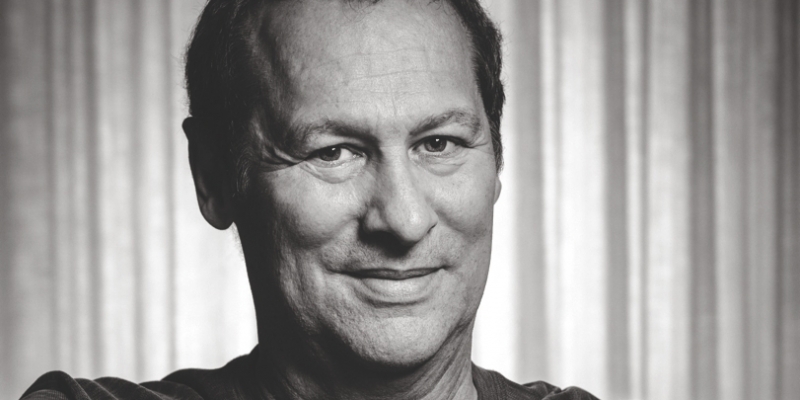BAFTA: A Materclass with Cliff Martinez

“I am the anti-John Williams,” Cliff Martinez proudly declared to the collected journalists and aspiring filmmakers at the BAFTA Masterclass last night. Whilst that may be true, his stellar body of work certainly has him up there with the higher echelons of the film scoring heavyweights. After all, this is the man who wrote the music for Drive, one of the few films where the soundtrack was arguably better received than the film itself.
The list goes on. After hanging up his drumsticks (from the Red Hot Chilli Peppers no less) he turned his attention to scoring movies, and hit his first break with Steven Soderbergh’s theatrical debut Sex, Lies and Videotape. Soderbergh and Martinez would go on to work together for an extended period, with Martinez writing the music for Traffic, Contagion, and arguably the finest film score of his career, Solaris. Then came his work with acclaimed Danish director Nicolas Winding Refn, which gave us Drive, Only God Forgives and, now, The Neon Demon. Throw in a BAFTA for best soundtrack for Far Cry 4 and you get the picture.
Despite doing a variety of compositions for countless directors, it’s his relationships with Winding Refn and Soderbergh that garner the most attention from our host Ian Haydn-Smith. So how did the relationship with Soderbergh come about? “He hired me because I was the only film composer he knew,” Martinez says, laughing. But he’s quick to follow up with praise, saying “I had a pretty good teacher in Steven. I pretty much got my whole film score identity from Steven.” When asked about the success of Drive and, more pertinently, his process, he simply says “if I could figure out why that score was so successful I’d repeat it in a heartbeat”. It’s fascinating, because as we are continuously shown clips of his music in action, Martinez is almost bemused by the attention.
Perhaps the most interesting discussion of the evening comes when Haydn-Smith asks him about his relationships with directors, and how a director’s vision can influence the composition of the music within the film. Martinez is quick to bring up Drive as a reference, noting the peculiar style of the movie where the action scenes contain no music. “It was Nicolas’s intention not to score the action stuff. There’s a car chase where there is music before the chase and after the chase but intentionally not during.” The important thing about the music in Drive, he says, is “perspective”.
It’s not just about thrillers for Martinez, though. He’s more than happy to talk about his work with Skrillex on Spring Breakers, describing how, when showing his collaborator some samples for the film, Skrillex simply replied with “that’s so 2011”. “We didn’t have much face-time” Martinez sheepishly admits.
Asked about his inspirations for music writing, the composer is quick to deflect his own talents onto other people. He seems almost unwilling to admit his own skill, not that the collected audience believes him. When pressed on where his ideas come from, he simply shrugs and says “I steal a lot of ideas from other people. If you steal music from one person then it’s plagiarism, but if you steal music from a lot of people then it’s fine”. He tries to make it seem like his entire success happened by accident, that he just happened to be in the right place at the right time. Discussing the instruments used to craft the score to Solaris – notably the use of steel drums – he chuckles: “A lot of my instrument selection comes from whatever happens to be in my view at the time. The idea of steel drums in the film was greeted with some scepticism at first.”
With a fresh score on the way for Winding Refn’s The Neon Demon, it’s clear that Cliff Martinez is still very happy with his work in the industry. “There are all kinds of reasons why I do stuff. Like money.” He jokes, but as the interview winds to a close he finally reveals a small shred of his motivation: “I think people feel drama and emotion from harmony and melody, and that’s why the film score is so important”. A telling point to end the evening with, and anyone who has seen Drive or Solaris would be loath to disagree with him.
James Fisher
Cliff Martinez was speaking to Ian Haydn-Smith on 23rd May 2016 as part of the BAFTA Masterclass series, for further information and future events visit here.
The Neon Demon is released nationwide on 8th July 2016.
Watch the trailer for The Neon Demon here:


























Facebook
Twitter
Instagram
YouTube
RSS